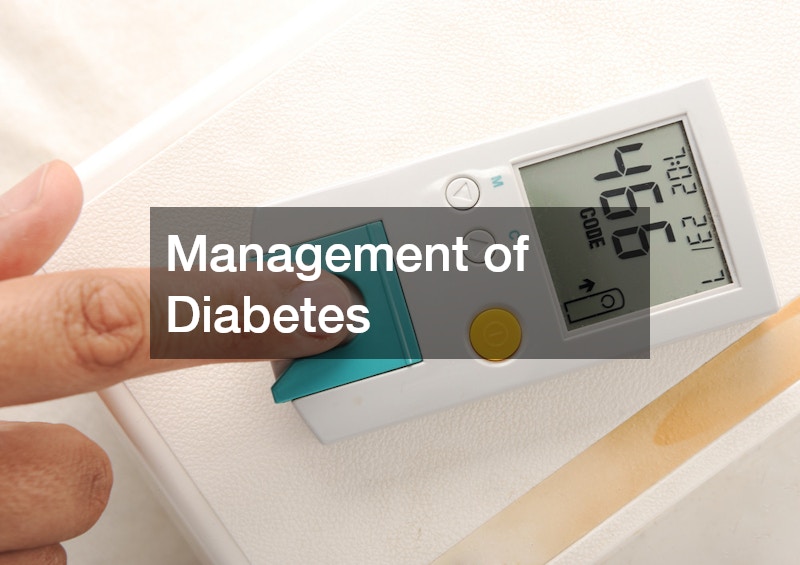11 Ways Routine Dental Services Can Affect Your Overall Health and Well-Being

Oral health is an essential aspect of overall well-being that is often underestimated. Many people consider dental visits as yet another healthcare appointment to check off a list. However, routine dental services play a critical role in maintaining not just your oral health, but your general health as well. With regular dental check-ups and treatments, you can prevent a multitude of health issues that can have profound impacts on your life quality.
This article explores ten ways in which dental services can enhance your overall health and well-being. From preventing serious conditions like cardiovascular disease to offering benefits you might not expect, like improving your digestive function, dental services extend far beyond just a clean and healthy mouth. As we dive into these connections, consider the potential ripple effects that can come from simply taking better care of your teeth and gums.
Through the use of routine dental services, a wide array of health issues can be mitigated or prevented altogether. Dental professionals at your local dental office perform tasks that may seem routine and mundane yet are essential for keeping various risky health conditions at bay. In this article, we’ll explore how dental health intersects with other aspects of physical health, illustrating the importance of maintaining consistent dental care.

1. Prevention of Cardiovascular Diseases
Routine dental services are significant in preventing cardiovascular diseases, an unexpected but scientifically supported benefit. Studies suggest a strong link between oral health and heart health, with poor dental hygiene potentially leading to conditions like heart disease or stroke. Inflammation and infections caused by gum disease, if untreated, can lead to the inflammation of blood vessels, which increases the risk of heart complications.
Visiting a cardiovascular doctor is crucial for managing heart health, but regular dental check-ups can serve as a preventive measure by reducing the risk factors associated with heart disease. Dental professionals can spot early signs of gum disease and address them promptly, thereby reducing inflammation and the transfer of harmful bacteria into the bloodstream. Consequently, dental services act as an initial line of defense against cardiovascular issues.
Incorporating regular visits to both dental and cardiovascular specialists contributes to a comprehensive healthcare approach. They complement each other by addressing related health concerns through different, yet interconnected practices. By maintaining good oral hygiene alongside your cardiovascular care, you’re adopting a strategy that could enhance your overall well-being significantly.
2. Early Detection of Oral Cancers
Routine dental services also play a pivotal role in the early detection of oral cancers. Dentists are trained to identify early signs of cancerous lesions during routine examinations, which can lead to prompt diagnosis and treatment, significantly improving the prognosis. Early detection is crucial in decreasing mortality rates and increasing the likelihood of successful treatments.
Oral cancer screenings are often part of routine dental check-ups. Therefore, regular visits to your local dental office could be a deciding factor in catching abnormalities early, which are sometimes asymptomatic and go unnoticed by the layperson. Routine dental services ensure that you are not only maintaining healthy teeth and gums but also safeguarding against potential life-threatening conditions.
A diverse treatment plan often involves collaboration with specialists beyond dentistry, such as oncologists or a physical therapy professional. In cases where oral cancer is detected, a comprehensive, multidisciplinary approach to treatment is beneficial. Thus, dental services become an inherent part of the larger healthcare network, collaborating to secure your health.

3. Management of Diabetes
The connection between oral health and diabetes is bidirectional, where poor oral health can lead to difficulties in managing blood sugar levels, and diabetes can exacerbate gum diseases. Routine dental services are instrumental in managing diabetes, as dental hygienists and dentists can help you maintain good oral health, reducing the risks of complications associated with diabetes.
Gum disease is more prevalent and severe in individuals with diabetes, hence the need for vigilant dental care. Regular check-ups and cleanings can help manage and prevent periodontal disease, thus playing a role in better glycemic control. By integrating routine dental visits into your diabetic care plan, you’re addressing one of the many pathways through which diabetes can affect overall health.
Collaborating with other healthcare providers, such as local cardiopulmonary rehab specialists or your primary healthcare provider, can further enhance diabetes management. Comprehensive care coordination, including dental services, can help maintain an optimal quality of life for individuals with diabetes.
4. Improvement of Respiratory Health
Dental services can also impact your respiratory health. Oral bacteria linked to periodontitis can travel to the lungs, causing or exacerbating respiratory diseases including pneumonia. Regular dental cleanings and a good oral hygiene routine can reduce this bacterial load, decreasing the risk of respiratory infections.
Oral health professionals play a significant role in maintaining the health of respiratory systems by educating patients on the importance of oral hygiene to reduce bacterial presence in the mouth. Cleaning and maintaining your teeth help minimize the bacteria and germs that can potentially enter your lungs, maintaining better respiratory health.
Additionally, conditions such as sleep apnea can also be evaluated and managed in tandem with oral health specialists. A collaborative approach, that may also involve physical therapy professionals, can yield effective solutions for breathing-related issues. Thus, dental services extend their benefits far beyond the oral cavity, proving indispensable to holistic health care.

5. Enhanced Digestive Health
Surprisingly, dental services have a profound effect on digestive health. Oral health forms the initial step of digestion, which begins with chewing, breaking down, and processing food for further digestion. Problems like missing teeth, cavities, or gum disease can impede proper chewing — a vital process for digestive health.
By resolving issues like cavities or periodontal diseases, dental services facilitate better chewing and breakdown of food, promoting more efficient digestion. When oral health is compromised, undigested food particles can prompt digestive problems or nutritional deficits, emphasizing the importance of keeping up regular dental appointments for overall digestive health.
Working alongside nutritionists and other health professionals, dental services can optimize your dietary choices and improve your digestive wellness. Whether addressing tongue ties that complicate chewing mechanisms or strategizing dietary modifications, dental services can enhance the efficiency of your digestive system.
6. Regulation of Blood Pressure
There is research pointing towards an intriguing connection between periodontal disease and high blood pressure, where inflammation caused by oral bacteria can influence blood pressure levels. Routine dental services, by reducing gum inflammation, may also play a role in regulating blood pressure.
For individuals battling hypertension, regular dental cleanings and periodontal maintenance might be steps toward better blood pressure control. Dental practitioners, by identifying and treating gum diseases early, contribute to the broader healthcare initiative aimed at stabilizing blood pressure.
This preventive approach can be reinforced by consulting with cardiovascular doctors who can assess and monitor your blood pressure levels. Thus, oral healthcare is another piece in the mosaic of strategies aimed at managing and maintaining healthy blood pressure levels.

7. Reduction of Pregnancy Complications
Maintaining oral health is particularly important during pregnancy, as it can help minimize risks of certain complications. Research suggests that periodontal diseases like gingivitis can increase the risk of preterm birth and low birth weight. Dental services play a preventive role by managing oral health changes that occur due to hormonal variations in pregnancy.
Prenatal dental care can alleviate or prevent inflammation, potential infections, and complications that might affect both the mother and the baby. Thus, expecting mothers are advised to make routine dental appointments a vital part of their prenatal care regimens, contributing to a healthier pregnancy and delivery outcome.
Along with regular prenatal check-ups, involving a healthcare team that may include physical therapy professionals for postnatal recovery can ensure comprehensive care throughout the pregnancy journey. Routine dental services form an integral part of this multidisciplinary care approach, underscoring their importance in prenatal health.
8. Promotion of Mental Health
The state of oral health can significantly influence mental health and vice versa. Persistent oral health issues like toothaches or gum problems can lead to stress, anxiety, or even depression. Conversely, stress and mental health disorders may exacerbate oral health problems, creating a cycle that can be challenging to break. Routine dental services can intervene to alleviate this cycle.
By maintaining a consistent oral hygiene regimen through dental services, individuals can reduce the stressors linked with poor dental health. Regular cleanings, examinations, and treatments reduce the likelihood of dental issues arising, which in turn reduces anxiety related to dental visits and conditions.
Moreover, healthcare providers, including professionals at a medical spa or other relaxation-enhancing settings, can offer supportive therapies that improve whole-body wellness. Combined with regular dental care, these services can significantly improve mental health outcomes and overall life quality.
9. Impact on Aesthetic and Social Confidence
Regular visits to dental practitioners are pivotal in maintaining an aesthetically pleasing and confident smile. Dental services help prevent tooth decay, staining, and gum disease, all of which can affect one’s appearance and, by extension, self-confidence. This impact is vital in social, professional, and personal domains where first impressions matter.
Orthodontic and cosmetic dentistry services, often sought alongside routine check-ups, enhance smile aesthetics by correcting dental structures. By addressing issues such as misalignment or tongue ties, which can affect speech and appearance, dental services improve physical attributes and empower individuals socially.
Moreover, partnering with beauty professionals at medical spas and engaging in comprehensive care strategies can elevate personal confidence. The synergy between aesthetic services and routine dental care ensures well-rounded enhancement of personal and social well-being.
10. Preservation of Long-Term Health Costs
Embracing dental services can lead to significant cost savings in both the short and long term. Preventive dental care is far less costly than treating advanced dental issues or addressing the numerous health complications that can arise from poor oral hygiene. Routine care encompasses regular cleanings, check-ups, and early interventions that prevent the progression of dental diseases.
Additionally, utilizing health insurance benefits to cover or reduce the costs of routine care promotes a proactive approach to managing both dental and overall health expenses. Health plans often provide coverage for preventive services, making routine dental visits a financially sound choice.
In the broader scheme, employing routine dental services means less reliance on more complex medical treatments down the line, such as those administered in a local cardiopulmonary rehab or by a cardiovascular doctor. Investing in oral healthcare today mitigates potential future expenditure across all areas of health and well-being.
11. Impact of Other Lifestyle Choices
Beyond the direct health benefits, the quality of water used in dental practices also plays a crucial role in maintaining oral and overall health. A well-maintained water treatment system in a dental office ensures that all equipment and tools are properly sanitized, reducing the risk of bacterial contamination. Water softening systems, in particular, help eliminate excess minerals that can lead to buildup in dental instruments, ensuring a more effective and hygienic dental experience for patients. This, in turn, supports the broader goal of routine dental services in promoting long-term health and well-being.
Another key component in maintaining optimal oral hygiene is the quality of drinking water at home. Many people overlook the impact that their water supply has on their teeth and gums. Reverse osmosis filtration systems provide an excellent solution by removing harmful contaminants such as chlorine, fluoride, and heavy metals, which can contribute to oral health issues over time. By integrating high-quality water filtration with routine dental visits, individuals can further enhance their dental care regimen and prevent potential complications that may arise from poor water quality.
Investing in dental services, alongside a reliable water treatment system, supports not only oral health but also systemic health. Clean, purified water through reverse osmosis enhances overall hydration, which is essential for saliva production and the prevention of dry mouth—a condition that can lead to tooth decay and gum disease. When combined with regular check-ups, preventive treatments, and proper hygiene practices, these measures work together to safeguard both dental and general health, reinforcing the profound connection between oral care and overall well-being.
The impact of routine dental services reaches far beyond merely maintaining a clean and healthy mouth. Comprehensive oral care integrates into various facets of our overall health and well-being, from reducing risks for systemic diseases to enhancing personal confidence and social interactions. Through regular dental check-ups and preventive care, unforeseen health conditions can often be detected and addressed earlier.
Routine dental services contribute to fortifying the body’s first line of defense against numerous diseases, highlighting the inherent interconnection of oral health with cardiovascular health, respiratory function, mental well-being, and more. By maintaining regular visits to your local dental office and implementing consistent dental hygiene practices, you can significantly bolster your long-term health.
For anyone striving for holistic health and a proactive lifestyle, understanding the fundamental role of oral health and dental services is imperative. As this article has demonstrated, embracing these practices not only aids in avoiding immediate dental issues but also fosters a pathway to improved overall wellness, cost-efficiency, and quality of life.